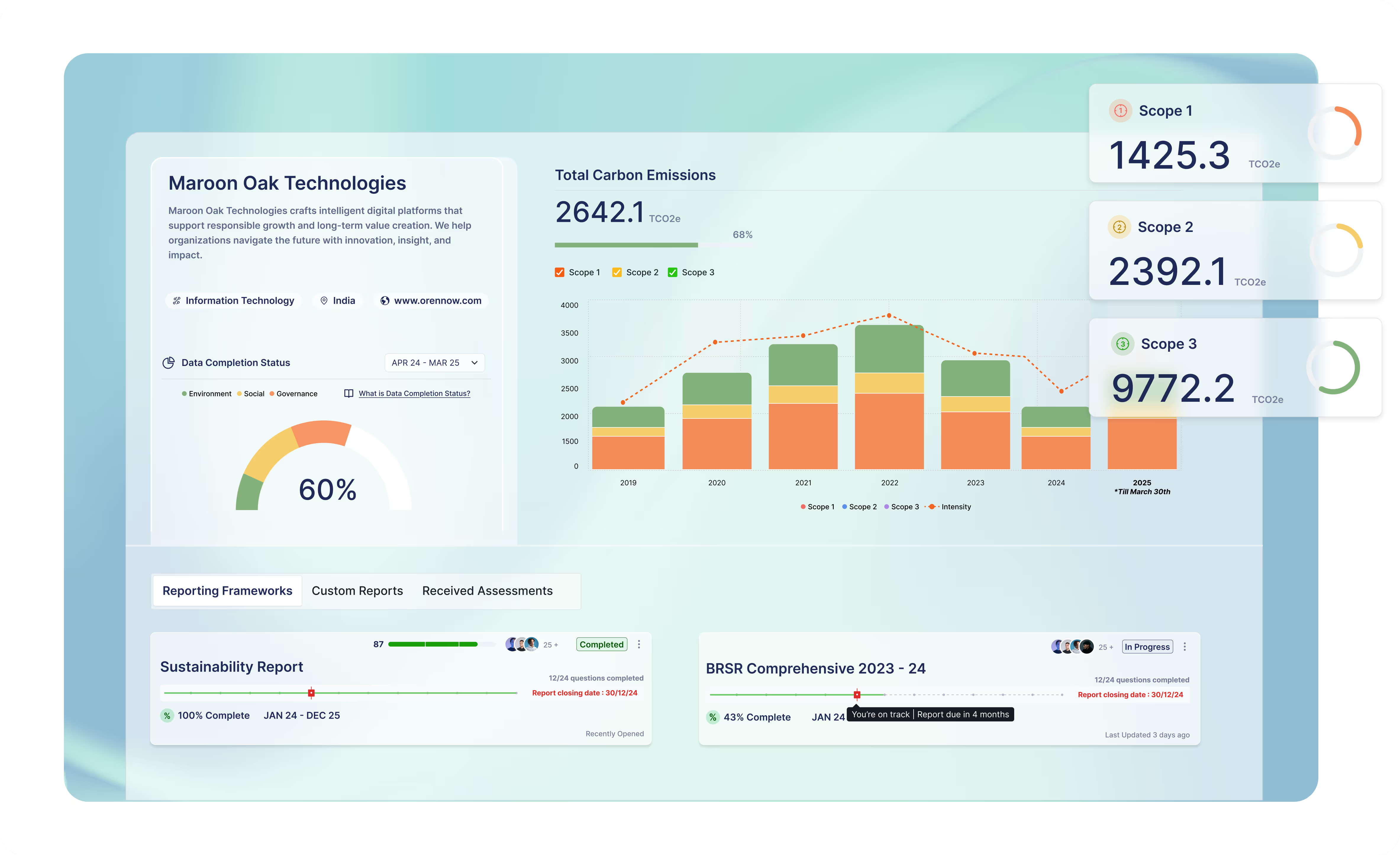Unlocking Financial Benefits through ESG Reporting: Strategies for CFOs

Introduction to ESG Reporting and Financial Advantages
Environmental, Social, and Governance (ESG) reporting has evolved from a mere trend to a vital component of corporate strategy. Companies are increasingly recognizing the financial benefits that come from robust ESG reporting and practices. As the environment deteriorates and consumer preferences shift towards sustainability, businesses are discovering that ESG integration not only helps in achieving sustainable development but also offers substantial long-term financial gains. Investors are now more selective, preferring investments that promise durability and sustainability, further amplifying the financial advantages of ESG initiatives.
Financial Benefits of ESG Reporting
1. Competitive Advantage through Sustainable Practices
Embracing ESG practices and transparently reporting their impact provides companies with a distinct competitive edge. By adopting sustainable methods, businesses can differentiate themselves in the market. This differentiation attracts eco-conscious consumers and investors who prioritize environmental responsibility. ESG reporting enhances brand loyalty by showcasing a company’s commitment to transparency and accountability, which resonates well with both existing and potential stakeholders.
2. Risk Mitigation and Long-Term Stability
In an era of economic volatility and environmental uncertainty, incorporating ESG factors into decision-making processes is crucial. ESG reporting helps companies anticipate and manage future risks, offering a clearer picture of their long-term viability. By addressing potential environmental and social risks, businesses can develop strategies that mitigate these risks and enhance their resilience, contributing to long-term financial stability.
3. Reduction in Cost of Capital
Investing in ESG practices, such as utilizing renewable energy sources, can significantly lower a company’s cost of capital. Renewable energy options like solar and wind are generally more cost-effective compared to fossil fuels, leading to reduced capital expenses over time. Studies by the World Economic Forum indicate that sustainable energy solutions can improve access to capital and enhance financial performance, aligning with the principles of carbon neutrality and decarbonisation.
4. Lower Operational Costs through Sustainability
While the initial investment in sustainable technology might be high, the long-term operational costs are often lower. Technologies that support environmental sustainability, such as clean energy systems, lead to decreased operational expenses. Savings in resource procurement, maintenance, and other operational areas contribute to overall cost efficiency and improved financial outcomes.
The Role of CFOs in ESG Integration
Chief Financial Officers (CFOs) play a pivotal role in integrating ESG factors into a company's financial strategy. Although ESG reporting primarily focuses on non-financial metrics, CFOs are crucial in aligning these metrics with financial goals. Their role extends beyond mere compliance; they are instrumental in ensuring that ESG practices contribute to the company’s overall performance and strategic objectives.

4 Strategies for CFOs to Enhance ESG Integration
1. Prioritizing Sustainable Investments
CFOs are responsible for allocating funds across various projects, making them key players in promoting sustainable initiatives. By prioritizing investments in projects that align with ESG objectives, CFOs can ensure that financial resources support sustainable development goals. Aligning financial and ESG targets helps in achieving both business and sustainability objectives.
2. Quantifying ESG Impacts
A CFO's ability to measure and quantify the impacts of sustainable investments is essential for effective ESG reporting. Transparent reporting on the outcomes of ESG initiatives not only satisfies regulatory requirements but also enhances overall report quality. By providing comprehensive data, CFOs help reduce potential internal conflicts and increase stakeholder trust in ESG reports.
3. Ensuring Regulatory Compliance
The complexity of ESG compliance and reporting requirements has increased significantly. CFOs must ensure that all reported information is accurate and adheres to regulatory standards. Non-compliance can result in substantial penalties, making it crucial for finance departments to conduct thorough analyses and maintain compliance with regulations such as the Global Reporting Initiative (GRI) standards and the Corporate Sustainability Reporting Directive (CSRD).
4. Balancing Financial and Non-Financial Metrics
Effective evaluation of a company's performance requires a balanced approach that includes both financial and non-financial factors. CFOs must integrate ESG metrics, such as carbon footprint and social impact, with traditional financial performance indicators. This holistic view supports the development of strategies that meet both business objectives and sustainability goals.

Conclusion
As the transition to a greener economy accelerates, CFOs have a critical role in harnessing the financial benefits of ESG reporting. By adopting sustainable practices, prioritizing ESG investments, and ensuring compliance, CFOs can enhance their company's financial performance while contributing positively to environmental and social outcomes. The evolving landscape of ESG reporting offers significant opportunities for companies to achieve long-term success and resilience.
Latest Blog Posts
Dive into our blog for insights on making your organization more sustainable.
Sustainability Simplified
Wherever you are in your sustainability journey, we help you advance with confidence.
Schedule a Call



.avif)

